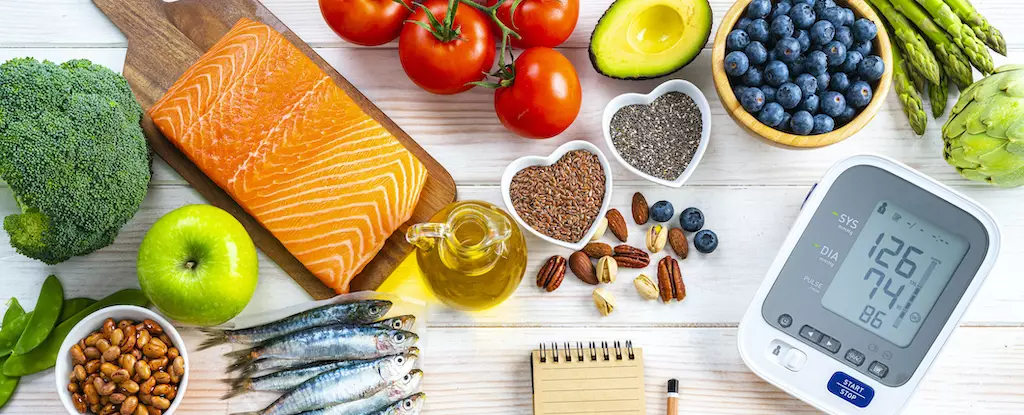Your GP has informed you that you have high cholesterol and has given you six months to work on your diet before reviewing your options. During this time, you may wonder if taking supplements can help in reducing your cholesterol levels. While supplements alone cannot be relied upon to control cholesterol, there is evidence to suggest that certain supplements, when combined with a healthy diet, can make a difference. In this article, we will explore the role of supplements in lowering cholesterol levels and discuss their effectiveness.
Cholesterol can be divided into two main types, both of which affect your risk of heart disease and stroke. Low-density lipoprotein (LDL) cholesterol, often referred to as “bad” cholesterol, carries cholesterol from the liver to cells throughout the body. Elevated levels of LDL cholesterol can lead to the buildup of plaque in arteries, increasing the risk of heart disease and stroke. On the other hand, high-density lipoprotein (HDL) cholesterol, often known as “good” cholesterol, helps remove excess cholesterol from the bloodstream and transports it back to the liver for processing and excretion. Higher levels of HDL cholesterol are associated with a reduced risk of heart disease and stroke.
Diet plays a crucial role in reducing blood cholesterol levels, particularly LDL cholesterol. Healthy dietary choices are well recognized, such as increasing the intake of unsaturated fats (e.g., olive oil, avocado) and decreasing the consumption of saturated fats (e.g., animal fats) and trans fats (found in certain processed foods). Another effective way to lower total cholesterol and LDL cholesterol levels through diet is by incorporating more soluble fiber. Soluble fiber dissolves in water to form a gel-like substance in the gut, binding to cholesterol molecules and preventing their absorption into the bloodstream. It enables cholesterol to be eliminated from the body through feces. Excellent sources of soluble fiber include fruits, vegetables, oats, barley, beans, and lentils. Additionally, there are various fiber supplements and food-based products available that may aid in reducing cholesterol levels.
Fiber supplements offer a convenient way to increase soluble fiber intake. Natural soluble fibers, such as inulin, psyllium, and beta-glucan, can be added to food or dissolved in water or drinks. Psyllium, in particular, has the most substantial evidence supporting its use in improving cholesterol levels. Numerous high-quality randomized controlled trials have demonstrated that consuming approximately 10g of psyllium per day (equivalent to 1 tablespoon) as part of a healthy diet can lead to a significant reduction in total cholesterol levels by 4% and LDL cholesterol levels by 7%.
Probiotics and Cholesterol
Probiotics, while not based on fiber, have shown promise in lowering cholesterol levels through various mechanisms. They aid in incorporating cholesterol into cells and modulate the gut microbiome to promote the elimination of cholesterol through feces. A meta-analysis of 32 studies revealed that individuals who took probiotics experienced an average reduction of 13% in their total cholesterol levels. Most studies included probiotics containing Lactobacillus acidophilus and Bifidobacterium lactis, which are available in capsule or powder form for daily consumption. However, it is important to note that the effects of probiotics may vary depending on the specific strains used, adherence to daily consumption, individual health status, and overall diet.
Red Yeast Rice as a Cholesterol-Lowering Supplement
Red yeast rice is a non-fiber supplement that has gained attention for its potential in reducing cholesterol. It is commonly used as a complementary therapy in Asia and some European countries for its resemblance to statin medications. A systematic review of 15 randomized controlled trials found that taking red yeast rice supplements (ranging from 200-4,800mg per day) was more effective in reducing triglyceride levels but less effective in lowering total cholesterol compared to statins. However, it is important to note that the long-term safety and efficacy of red yeast rice supplements remain unclear, as the available studies may be incomplete or biased towards publishing positive results.
Consulting Your Healthcare Professionals
Before considering the use of supplements to lower cholesterol, it is essential to speak with your GP and dietitian. They will provide guidance tailored to your specific needs and help determine the most appropriate course of action. While dietary changes and supplements may have some impact on cholesterol levels, they may not be sufficient on their own. Quitting smoking, reducing stress, regular exercise, and adequate sleep are also vital for overall cardiovascular health. Additionally, genetic factors may influence cholesterol levels, which may necessitate the use of cholesterol-lowering medications, such as statins. Your GP will discuss these options with you during your six-month review.
While supplements alone cannot effectively control cholesterol levels, incorporating certain supplements into a healthy diet may help in lowering cholesterol. Soluble fiber supplements, particularly psyllium, have demonstrated significant reductions in cholesterol levels. Probiotics also show promise, although further research is needed to determine their specific efficacy. Red yeast rice supplements may have some benefits, but the long-term safety and completeness of the evidence base are uncertain. Before implementing any changes to your cholesterol management plan, it is crucial to consult with your healthcare professionals for personalized advice and guidance. Remember that a holistic approach to cardiovascular health, including lifestyle modifications and, if necessary, medication, is crucial for optimal results.



Leave a Reply